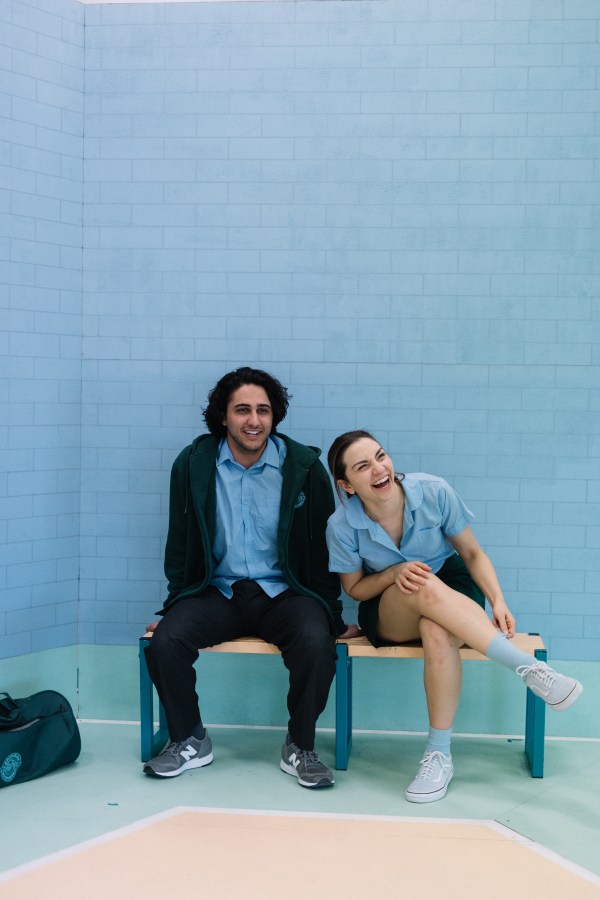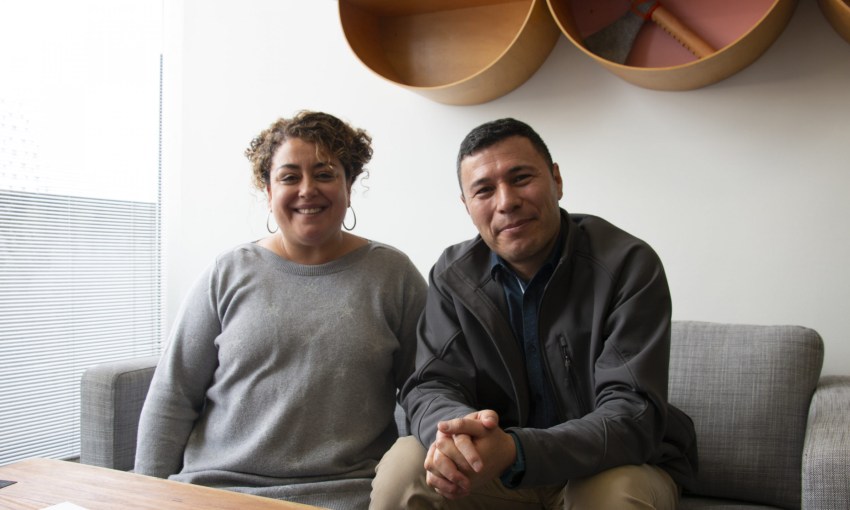Revived for a 2021 season, Windmill Theatre's 2018 production 'Amphibian' infuses harrowing details of the lives of unaccompanied minors seeking asylum in Australia and beyond into the story of one 17-year-old Hazara Afghan refugee.
‘Amphibian’ represents all the stories that couldn’t be told
The day Muzafar Ali’s car blew up was not the day he decided to leave Afghanistan.
“In 2005, the Taliban hit my car in Maidan Wardak Province,” the photographer, activist and former United Nations worker tells CityMag.
“We are so lucky to [have] survived.”
Amphibian
21—24 September: 10am and 1pm
25 September: 5pm and 7:30pm
Space Theatre
Adelaide Festival Centre, Adelaide 5000
Click here for more information.
Muzafar was an adult, with a wife and a two-year-old daughter in tow, when a detonated landmine shattered his vehicle.
It would be more than half a decade later, though, before he and his family would finally decide to flee Afghanistan.
Muzafar worked in Afghanistan as an interpreter, political analyst, media consultant and project manager for several United Nations organisations.
In 2012, he and his family were travelling between Kandahar to Kabul by car when they were stopped by a Taliban migration official who quizzed them about the journey. Muzafar remembers feeling “heartbroken” upon realising the city’s local elders were not resisting the Taliban’s political occupation in the area. The organisation was now controlling who came and went.
This was the moment Muzafar realised the country’s situation was “not going to improve.”
As a result, Muzafar and his family fled Afghanistan as refugees to neighbouring Pakistan, and then on to Malaysia and Indonesia. Their end goal was Australia.
Hearing Muzafar recount his experience as a refugee, there are many parts of his story that sound equally heroic and harrowing. But in one chapter in particular, we’re led to imagine what the journey must have been like for his daughter.
The family travelled by boat through the Malacca Strait, from Malaysia to the West Javan town of Cisarua, in Indonesia. Muzafar was one of the many passengers who didn’t know how to swim.
“They dropped us near the shores and the sea waves were getting really big,” Muzafar says, “and that was very scary.”
“There was so much that was unknown. My daughter was about three years old, and I remember her like this,” Muzafar brings his hands to his shoulders, where his daughter sat to keep her head above water. “My daughter remembers now how scared she was in the water.”
When Muzafar started his expedition towards asylum he was an adult, and fluent in the systems that could help he and his family stay in Australia. But he knows many others are not.
“I spent two years as a refugee with my family members, eight of us in Indonesia,” Muzafar says. He made friends with many “unaccompanied minors” in the village. These are children without the presence of a legal guardian. “One of our friends was Khadim Dai, an unaccompanied minor.”
Khadim Dai is one of 35 million children under the age of 18 who have been forcibly displaced since 1951, according to United Nations High Commissioner for Refugees. Some travel with parents or siblings, but Khadim made the journey on his own.
Muzafar’s experience living with Khadim and other unaccompanied minors in Cisarua, and navigating the asylum seeker determination process, informed Windmill Theatre’s 2018 production, Amphibian.
Windmill has revived the 55-minute play for a 2021 run, with two evening performances scheduled for Saturday, 25 September, and a week of school program dates. Due to the unfolding conflict in Afghanistan, a portion of the box office income from this run will be donated to the Baba Mazari Foundation.

L—R: Hassan (Rami Saaid) and Chloe (Julia Vosnakis). This picture: Thomas McCammon
Developed by Windmill’s Associate Director Sasha Zahra and South Australian playwright Duncan Graham, the work follows the story of two 15-year-old high school students – Chloe and Hassan – who have very different experiences with displacement.
The two characters are sent to the school’s quadrangle after it’s discovered their teacher’s wallet is missing since they fed the class axolotl. As they speak, “two very different personal histories are revealed,” Sasha tells CityMag.
“We hear Hassan’s story, of him leaving his home in Afghanistan and his journey to Australia, via land and sea, to find a new life. We also hear Chloe’s story of being forced to leave her home and all her friends in Sydney because her dad has gotten a new job in Adelaide. We hear these two very different histories of these two young people.”
When Sasha and Duncan were commissioned to produce a work relevant to young people, they conducted a series of workshops and interviews with school children. They wanted to explore what kids are scared of losing. Many responded that they were fearful of losing home and family.
“We just went, ‘That’s really kind of interesting, to think about that in the context of what’s happening in the world’,” Sasha says.
After then reading an article in the New Yorker highlighting the lived reality of unaccompanied minors in a former French refugee camp, Sasha and Duncan wondered about the unaccompanied minors who had made extraordinary journeys to Australia. To ensure authenticity in the story they hoped to tell, the duo reached out to Muzafar and another Hazara refugee, Elyas Alavi.
Over a shared meal, Muzafar shared his family’s story – as well as a tapestry of other tales encountered from those who similarly fled violence. Sasha recalls feeling floored.
“It’s incredibly hard to actually comprehend that that’s a true story and there are young people that have experienced these things and survived them and then managed to move on with their lives. It feels like fiction,” she says.
Khadim, Muzafar’s young friend from Cisarua and a Hazara refugee, was 17 when his school in Pakistan was destroyed by a bomb blast. “The day he was burying his classmate, he sit on her grave, because it was she who died. He promised her that he will tell her story to the world,” Muzafar says.
“We talked about all these stories.”
Muzafar now works to bring to life the many different stories of refugees and those who didn’t make it. He is compelled to do so now more than ever, considering recent events in Afghanistan.
“Amphibian is the story of the same Afghanistan, and it’s even a worse situation now.”




